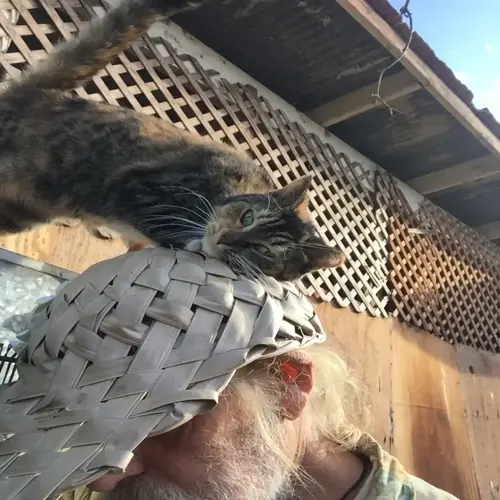How can I make my cat comfortable in the carrier?

Written by
Victoria Hayes
Reviewed by
Prof. Edward Clarke, Ph.D.Cats can be made comfortable in carriers by recognizing what disturbs them. Cats often lose their sense of security in confined spaces. Careful preparation considerably allays this anxiety. Use familiar scents and gradual training. Your cat can be taught to associate the carrier with safety rather than fear.
Scent Preparation
- Line carrier with bedding from your cat's favorite sleeping spot
- Avoid strong detergents that mask familiar home smells
- Rotate bedding weekly to maintain scent familiarity
Pheromone Timing
- Apply synthetic pheromone spray precisely 30 minutes before loading
- Target bedding corners not carrier surfaces
- Reapply every 4 hours during extended trips
- Test skin sensitivity 24 hours before first use
Distraction Tools
- Include soft rubber toys with treat-dispensing features
- Choose silent toys to avoid sensory overload
- Rub catnip on toys only for cats who respond positively
- Remove toys if they cause overstimulation
The four-week acclimation plan builds lasting comfort. Start with open carrier exploration using high-value treats. Progress to closed-door sessions. Add short carries around your home. Finally, simulate car rides. This gradual approach prevents overwhelming your cat.
Temperature regulation reduces discomfort during transport. Avoid direct sun exposure or air vents. Use insulated carrier covers in extreme weather. Monitor for panting or drooling. These are signs of dangerous overheating, and you should take immediate action to cool them down.
Placement is important, too, for physical comfort. Secure all carriers on level surfaces. Non-slip mats can help prevent slips and falls. If possible, slightly elevate carriers for better air flow. Never leave carriers in footwells or trunk areas. Proper placement can help reduce motion sickness.
Caring for yourself after traveling helps maintain the positive experience you just had. When you arrive, give your cat water and, if desired, a favourite treat. Allow for a quiet recovery space in your location. Do not punish your cat for resisting the carrier; instead, try to coax it into it gently. By using consistent approaches, your cat will come to accept the airline willingly.
Read the full article: Choosing the Right Cat Carrier Size Guide

